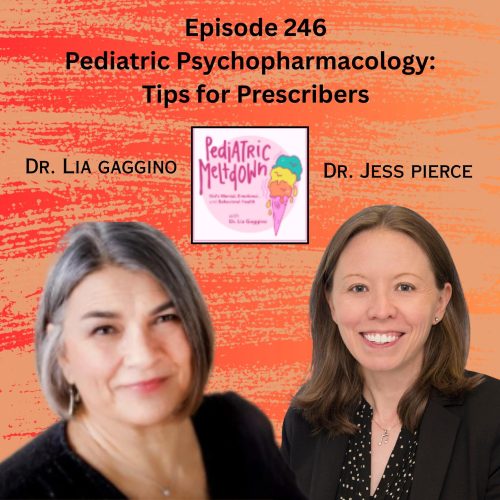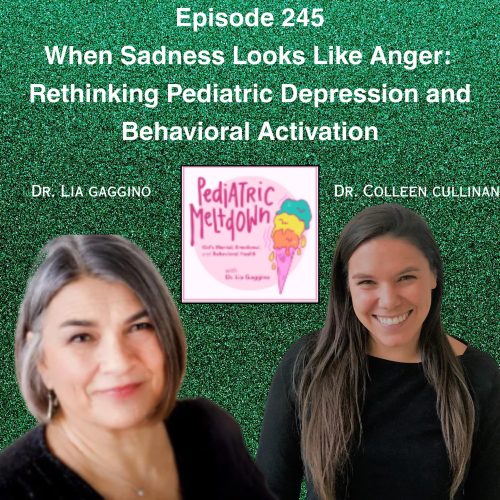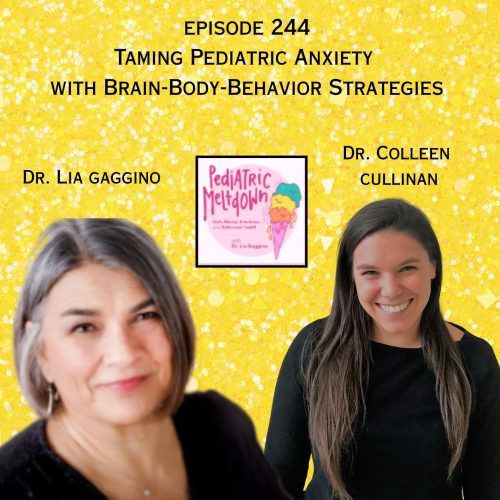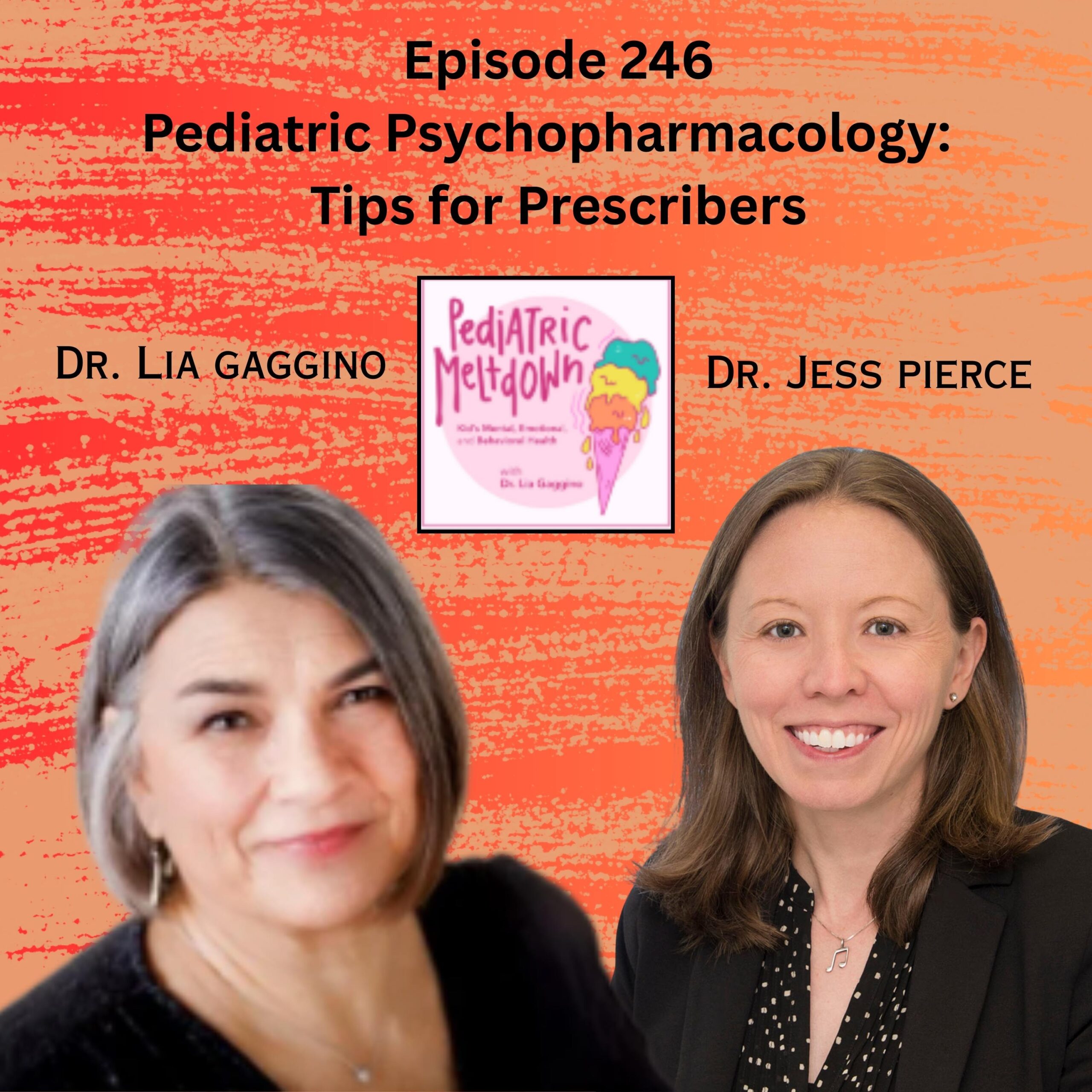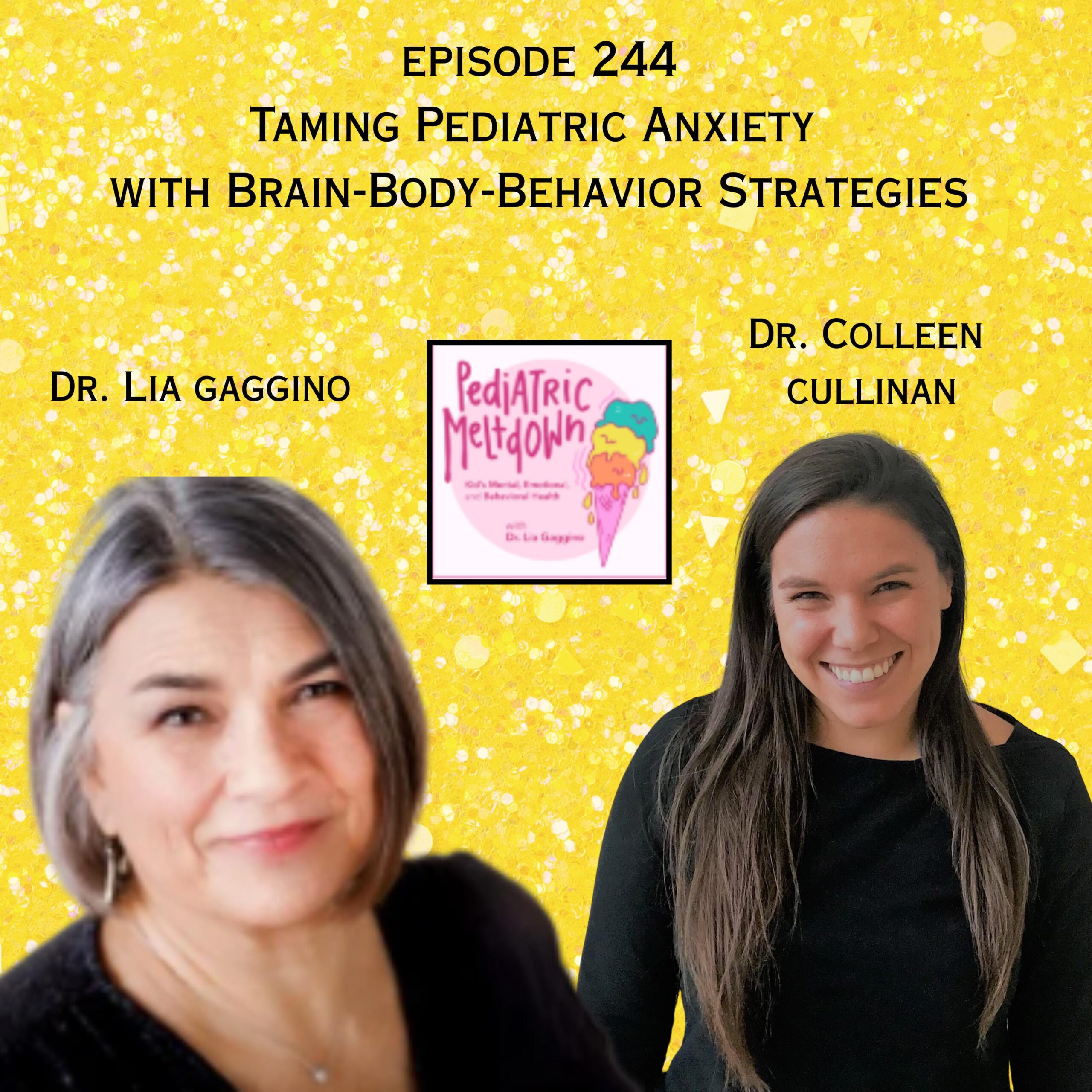Welcome to Pediatric Meltdown, the podcast for busy pediatricians who want to better understand children’s emotional health and behaviors and gain the skills and knowledge to help them thrive. I am your host, Lia Gaggino, Today we are joined by Dr. Sarah Mohiuddin.
In a surprising, at least to me, conversation, child psychiatrist Dr. Mohiuddin shares a new mental healthcare perspective for PCP’s – abandon the “fix it” mindset and instead consider a chronic illness model that focuses on partnership with the patient and family to identify their most important concerns. Her insights suggest that using our longitudinal relationship with families, we can make enormous impact. For those of us who are overwhelmed by the notion of mental health care is primary care, Dr. Mohiuddin suggests reframing our negative self-talk and setting positive intentions for the day – “You’ve Got This!” comes to mind for me. Deep breath, you know more than you think you do!
Key Highlights:
[00:30 – 09:04] Dr. Sarah Mohiuddin on How to Address Overwhelming Mental Health Needs in Pediatric Patients
- Welcoming back, Dr. Sarah Mohiuddin is a child psychiatrist and director of the multidisciplinary autism program at the University of Michigan.
- She also is the fellowship training director of the child psychiatry fellowship program at Michigan Medicine and co-director of behavioral science sequence at the University of Michigan Medical School.
- She is passionate about educating medical students, residents, fellows, and other physicians about childhood mental health and care of individuals with autism spectrum disorders and developmental disabilities across the lifespan.
- During the course of becoming a physician, she believes that breaking down patients and building them up is important, but can lose pieces
[09:05 – 25:56] How to Address the System of What’s Going On at School, but Not Everything Has to Be Achieved in a Visit
- Pediatric clinicians need to reframe their job as a partnership with patients and families, rather than “Fixing” things
- Mental health is similar to medical issues in that there are acute exacerbations and chronic stressors that cannot always be fixed\
- It is important for pediatric clinicians to listen to patients and understand their values in order to help them make change
- Mental Health Conditions: It’s Not Just About Fixing Them
[25:57 – 34:24] How to Collaborate with a Pediatrician to Improve Patient Care
- When meeting with patients, it is important to be clear about expectations and to level them for the patient.
- It is also important to be patient with patients and not expect them to fix everything right away.
- Patients can learn a lot from their physician colleagues, especially when it comes to general intervention strategies.
[34:25 – 42:58] Primary Care Physicians Struggle To Find Meaning In Their Work
- Taking advantage of Primary Care.
- focusing on positive self-talk rather than the negative.
- CBT for physicians
- Acknowledging the our work is hard.
- Closing segment
- Final Words
- All of us who care for children are overwhelmed by their emotional distress.
- Let the patient and family lead. Let them identify
- Partner with the family to seek change over time and help create a working game plan using your expertise
- Pediatricians have the advantage of longitudinal relationships with families and kids psychiatrists have a point in time relationship.
- Our Challenges: High volume practice flow and the challenge of not enough time
- Reframe mental healthcare using a chronic illness model.
- Put patients in the driver’s seat, expect non-adherence to your prescribing, but go further and ask why.
- Lean on our child and adolescent psychiatrist and use child psychiatry access programs.
- A word of caution: Do not take on the burden of your families on yourself to fix or cure the patient.
- Dr. Mohiuddin words for our care. Our own care are truly what I think of as a C B T model focusing on positive self-talk because you have a lot more to offer than you imagine.
- The work is hard! In the words of Dr. Heather Forkey you and with your colleagues: create a culture of care.
- A Reframe: Families and patients see us because we see them.
- As you begin your day, set your intention to find joy and meaning and remind yourself of your skills. You’ve got this and nurture growth and seek knowledge.
Key quotes:
“In these types of collaborations between, pediatricians and child, psychiatrists, or other subspecialists, one way in which we can like further our efficacy is to learn how each other thinks” – Dr. Sarah Mohiuddin
Resources:
- Find a child psychiatry access program near you!
- www.nncpap.org
- Self-help CBT:
- Stop Physician Burnout by Dike Drummond. Checkout chapter on mindfulness stress relief.
THANK YOU FOR YOUR SUPPORT!
Pediatric Meltdown was listed as a Top 20 Pediatric Podcast on FeedSpot.
If you’d like to connect with me, you can find me on LinkedIn, Facebook, Instagram, and Twitter, or email me at [email protected] or [email protected]. To learn more about me visit https://www.medicalbhs.com/
LOVE WHAT YOU HEARD? Leave us a 5-star review so we can continue to provide you with great content. Share this episode and help people know more about children’s health and well-being.



